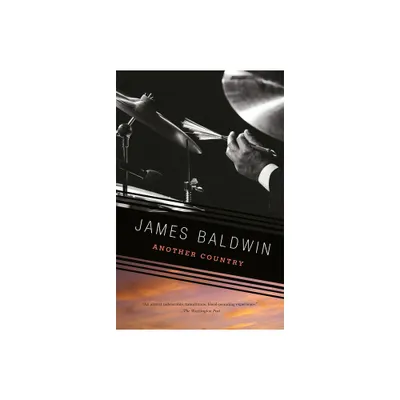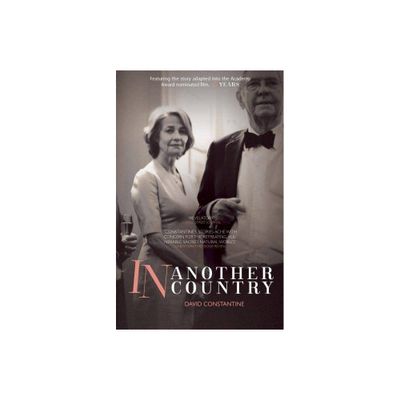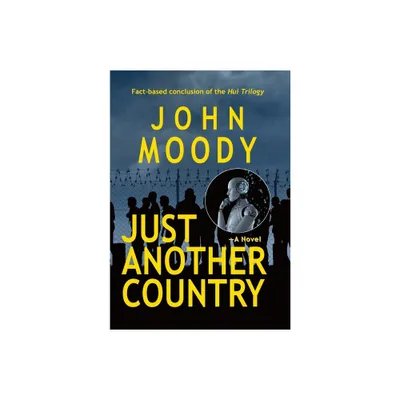Home
Strangers in Another Country
Loading Inventory...
Barnes and Noble
Strangers in Another Country
Current price: $17.99


Barnes and Noble
Strangers in Another Country
Current price: $17.99
Loading Inventory...
Size: OS
*Product Information may vary - to confirm product availability, pricing, and additional information please contact Barnes and Noble
Utah Phillips
, who modestly billed himself as The Golden Voice of the Great Southwest, lived up to his moniker with a lifetime of singing, songwriting, storytelling, and fighting for social justice. He didn't sell many records, but anyone who saw him perform came away with their spirits lifted. He's one of the most underrated songwriters of the folk world, on a par with
Pete Seeger
for his ability to transform tradition material into works that speak to the heart of the modern struggle for peace and justice.
Sorrels
met
Phillips
in the '50s, when they were both struggling, itinerant folkies. He was on his way to the Korean War to "find himself." He came back a pacifist and songwriter and stayed on the road performing for the rest of his life. Even after his health stared to fail, he was performing Farewell Concerts full of his tall tales and wonderful original songs.
and
were lifelong friends and she started this album as a benefit project to help him pay his mounting medical expenses. He died before the album was completed, so the album now serves as her memorial and eulogy to her old pal. At 75,
still has a strong voice and she's able to croon with sympathy or rage with righteous anger as the occasion demands. She introduces
"Starlight on the Rails,"
one of the great American train songs, with a meditation
wrote on the loneliness of the American condition before singing the tune is a high lonesome warble that accentuates its desperate beauty.
"Enola Gay,"
a duet with
Peggy Seeger
, is a poetic, ironic ode to the plane that dropped the atom bomb on Hiroshima. It's told from the perspective of the bombardier on that fateful flight, and full of subtle horror.
Seeger
also adds her banjo and vocals to
"Schofield Mine Disaster,"
a clattering tune that tells the story of a disaster that left 200 miners dead and a mine fire that burned underground for years.
delivers two songs in stark a cappella readings.
"Mountain Valley Home,"
a pure primal country song of nostalgia is as lonely as a coyote's howl, while
"Don't Go Home"
is a harshly funny drunken sea shanty, full of keening alienation.
did have a light side as well.
"I Had a Mule"
was a favorite when
the Limelighters
recorded it in the '60s, a goofy tall tale about anthropomorphic mules, birds, and brontosauri.
interspersed
' tunes with pieces by some of the poets, singers, and writers he loved including
Kenneth Patchen
, the forgotten genius of the Beat Generation,
Malvina Reynolds
, and
Dwight D. Eisenhower
, whose famous warning about the military-industrial complex should be tattooed on the forehead of every politician.
Eisenhower
's poetic words could have come from a
song: "Every gun that is made, every warship launched, every rocket fired signifies in the final sense a theft from those who are hungry and not fed, those who are cold and not clothed." ~ j. poet
, who modestly billed himself as The Golden Voice of the Great Southwest, lived up to his moniker with a lifetime of singing, songwriting, storytelling, and fighting for social justice. He didn't sell many records, but anyone who saw him perform came away with their spirits lifted. He's one of the most underrated songwriters of the folk world, on a par with
Pete Seeger
for his ability to transform tradition material into works that speak to the heart of the modern struggle for peace and justice.
Sorrels
met
Phillips
in the '50s, when they were both struggling, itinerant folkies. He was on his way to the Korean War to "find himself." He came back a pacifist and songwriter and stayed on the road performing for the rest of his life. Even after his health stared to fail, he was performing Farewell Concerts full of his tall tales and wonderful original songs.
and
were lifelong friends and she started this album as a benefit project to help him pay his mounting medical expenses. He died before the album was completed, so the album now serves as her memorial and eulogy to her old pal. At 75,
still has a strong voice and she's able to croon with sympathy or rage with righteous anger as the occasion demands. She introduces
"Starlight on the Rails,"
one of the great American train songs, with a meditation
wrote on the loneliness of the American condition before singing the tune is a high lonesome warble that accentuates its desperate beauty.
"Enola Gay,"
a duet with
Peggy Seeger
, is a poetic, ironic ode to the plane that dropped the atom bomb on Hiroshima. It's told from the perspective of the bombardier on that fateful flight, and full of subtle horror.
Seeger
also adds her banjo and vocals to
"Schofield Mine Disaster,"
a clattering tune that tells the story of a disaster that left 200 miners dead and a mine fire that burned underground for years.
delivers two songs in stark a cappella readings.
"Mountain Valley Home,"
a pure primal country song of nostalgia is as lonely as a coyote's howl, while
"Don't Go Home"
is a harshly funny drunken sea shanty, full of keening alienation.
did have a light side as well.
"I Had a Mule"
was a favorite when
the Limelighters
recorded it in the '60s, a goofy tall tale about anthropomorphic mules, birds, and brontosauri.
interspersed
' tunes with pieces by some of the poets, singers, and writers he loved including
Kenneth Patchen
, the forgotten genius of the Beat Generation,
Malvina Reynolds
, and
Dwight D. Eisenhower
, whose famous warning about the military-industrial complex should be tattooed on the forehead of every politician.
Eisenhower
's poetic words could have come from a
song: "Every gun that is made, every warship launched, every rocket fired signifies in the final sense a theft from those who are hungry and not fed, those who are cold and not clothed." ~ j. poet


















